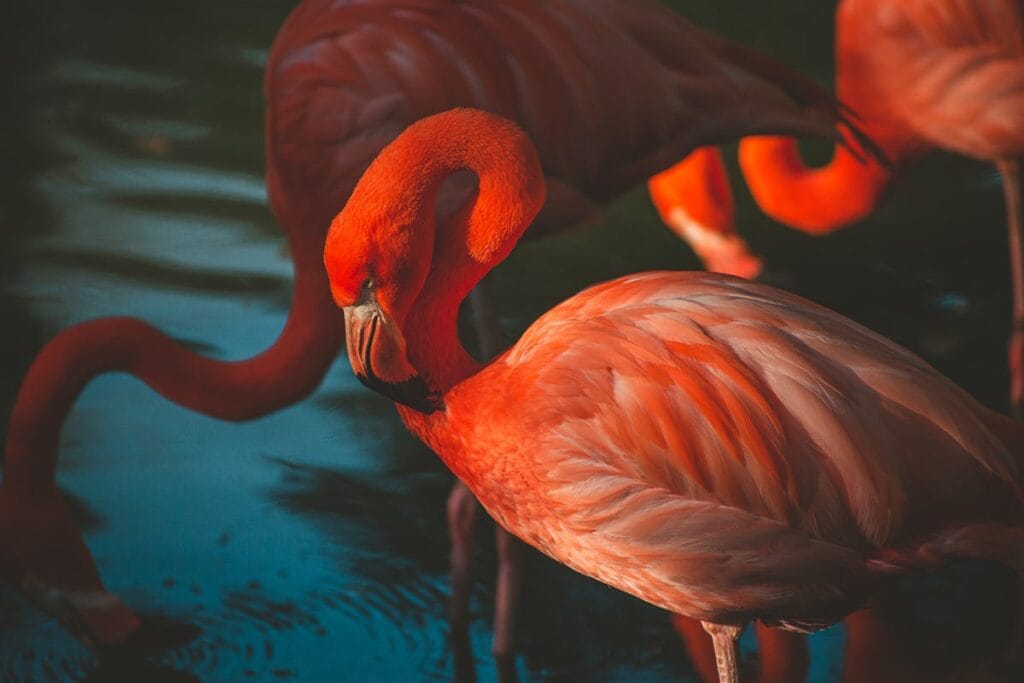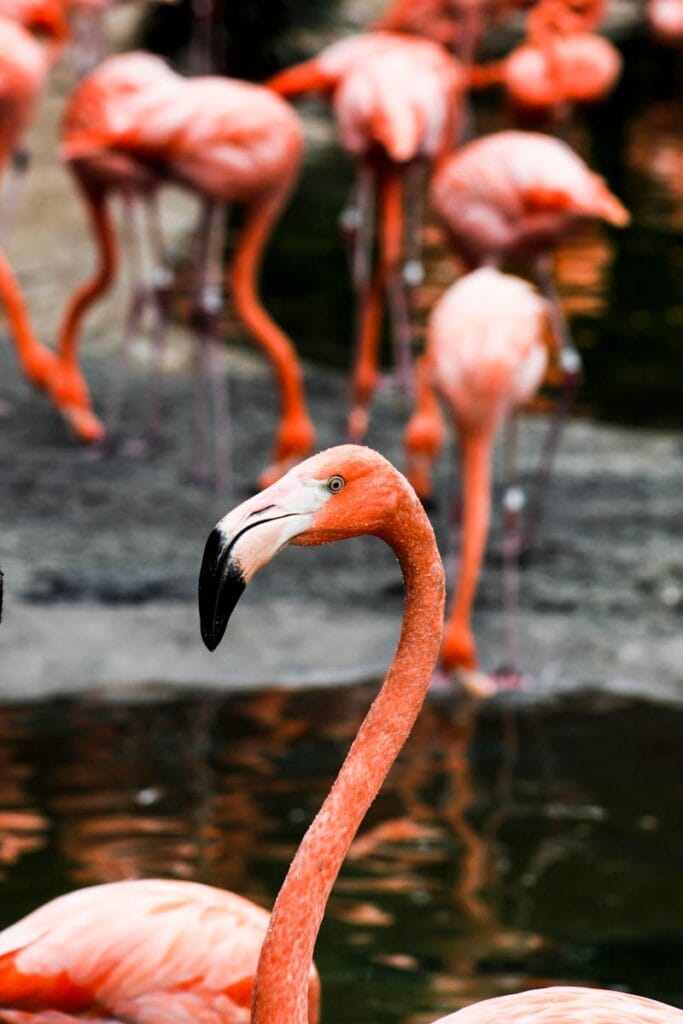5 Lessons Women Can Learn from Flamingos to Prevent Loneliness
We curated 5 beautiful, unexpected lessons women can learn from flamingos to prevent loneliness and how to keep your own vibrant colour shining, no matter what season of life you are in.

There’s a beautiful irony in the way nature holds answers to modern problems we think are uniquely human. Loneliness, for example, isn’t just a human struggle — it’s a universal experience. And one of nature’s most surprising teachers on this subject? The flamingos.
We often think of flamingos as symbols of grace, beauty, and balance but beneath their striking pink feathers lies a powerful life lesson: flamingos never thrive alone. In fact, their survival depends on connection. Without their flock, flamingos lose not only their safety but their colour, their rhythm, and even their joy. Sound familiar?
Loneliness has become one of the most quietly destructive experiences of modern life. It’s easy to assume that loneliness only happens in moments of isolation, but in truth, it often shows up in busy homes, crowded offices, even within relationships. It’s not just about being alone. It’s about feeling alienated, unconnected, unanchored. And strangely enough, the animal kingdom has a lot to teach us about that. Especially flamingos.
We curated 5 beautiful, unexpected lessons women can learn from flamingos about preventing loneliness and how to keep your own vibrant colour shining, no matter what season of life you’re in.
What Flamingos Know About Friendship That We Sometimes Forget

In the wild, flamingos live in flocks sometimes numbering in the thousands. They know isolation is dangerous. Together, they find food, protect each other and even synchronize their movements, from migrating in formation to dancing elaborate courtship rituals in perfect harmony.
When flamingos are isolated, their colour fades. Literally. Their vibrant pink hue comes from carotenoids in their diet but stress, disconnection and solitude can dull their feathers. In a way, their outer glow reflects their inner wellbeing.
Women today live in a world more connected than ever digitally, yet more isolated emotionally. Between busy schedules, life changes, and silent struggles, loneliness can creep in — often quietly, often unseen. But perhaps the way forward isn’t about doing more, but about remembering what nature already knows: we’re designed to belong.
5 Lessons to Prevent Loneliness
You’re Not Meant to Do Life Alone
Flamingos gather in flocks for everything: feeding, flying, raising their young. They don’t wait until things get bad to come together. They stay together because that is their strength.

How often do women wait until they’re exhausted, overwhelmed, or completely burned out before reaching for help? We wear independence like a badge of honour, whispering to ourselves, “I should be able to handle this.” But nature tells a different story.
→ Lesson: Start asking for company before you need it. Phone a friend before the tears come. Send the text before loneliness turns heavy. Let being together be the norm, not the emergency plan.
Connection Happens in the Small, Ordinary Moments
Flamingos perform synchronized movements daily, little rituals that keep them bonded. It’s not always dramatic. It’s simple. But it works. In real life? Friendship rarely looks like champagne toasts and girls’ weekends in Bora Bora. More often, it’s texting a friend at 7am. It’s showing up for coffee. It’s laughing in the car after the school run. We don’t lose connection because life gets busy; we forget that the small moments are the big moments.
→ Lesson: Stop waiting for “perfect.” Send the quick voice note. Share the song that reminded you of her. Tag your friend in that ridiculous reel. That’s how flocks stay together.
Isolation Drains Your Colour — Literally and Emotionally
When flamingos are isolated or unwell, their vibrant pink fades to pale grey. They need connection, movement and nourishment to stay bright. Women, too, lose their colour when life becomes all output and no connection. We stop laughing from the belly. Our creativity dulls. Our sparkle dims. Loneliness doesn’t always look like sadness. Sometimes it looks like exhaustion. Or silence. Or going through the motions.
→ Lesson: If you feel yourself fading, it’s not failure — it’s feedback. It’s time to return to your people. Time to refill what’s been quietly emptying.
Your Flock Won’t Always Look Like You — And That’s Beautiful
Flamingos gather in huge, diverse flocks — young with old, strong with fragile, loud with quiet. That mix keeps them safe and adaptable. Sometimes, women limit connection to people who “get” their exact life stage — other moms, other entrepreneurs, other singles, other creatives. But the richest friendships often come from unexpected places: the neighbour twice your age, the coworker just starting out, the friend with a wildly different worldview.
Lesson: Widen your circle. Let difference deepen your life, not threaten it. You don’t have to match to belong.
Sometimes You Have to Move to Find Your People
Flamingos travel incredible distances to find better waters, safer grounds, warmer places. They don’t stay stuck when the environment no longer nourishes them. This might be the hardest truth of all: sometimes loneliness lingers because we’re rooted in places (or relationships) that no longer fit who we’re becoming.
→ Lesson: It’s okay to outgrow spaces. It’s okay to seek new energy. Join the class. Start the group. Walk into the room where no one knows you — yet.
You deserve a flock that sees you, values you and keeps your colour bright.
Preventing Loneliness
We live in a world that celebrates independence, but nature shows us again and again: true resilience comes from interdependence. Flamingos teach us that connection isn’t weakness. It’s survival. It’s beauty. It’s strength. So maybe the question isn’t “Am I lonely?” Maybe the better question is “Where is my flock?” Find them. Feed them. Stand with them. And watch your colour return.
Do you want to share your story and inspire our readers ? Know that YOUR EXPERTISE is paving the way for a fairer, happier society.



